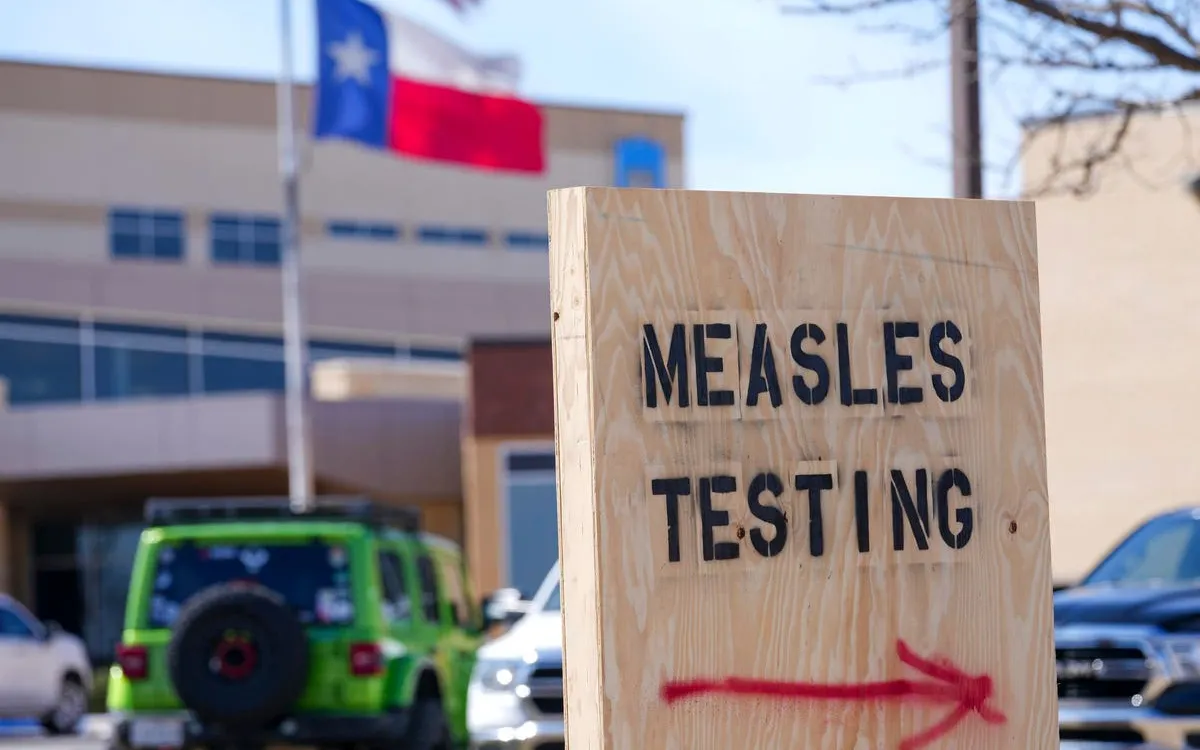
A significant measles outbreak in Texas has led to nearly 280 confirmed cases as of Tuesday. This alarming situation highlights the growing spread of this highly contagious illness, which has now been reported in 15 states, surpassing the total number of measles cases recorded in 2024. As public health officials scramble to contain the outbreak, understanding its scope and implications is crucial.
The majority of confirmed measles cases are clustered in Gaines County, a rural region located approximately an hour-and-a-half west of Lubbock, with 191 cases reported there. Other affected areas include Terry County with 36 cases, Dawson County with 11, and Yoakum County with 11 as well. Additional cases have been documented in Dallam County (6), Martin County (3), Lubbock County (5), Ector County (2), and Lynn County (2). Notably, there are cases outside of this primary outbreak, including 3 cases in Harris County, 2 in Lamar County, and isolated instances in Rockwall County and Travis County.
The measles outbreak in Texas has predominantly affected younger demographics. Approximately 120 cases have been reported among individuals aged five to 17, while 88 cases involve children aged zero to four, and 52 cases have been documented in adults aged 18 and older. The ages of 19 patients remain unspecified, indicating a potential gap in reporting.
The situation is not limited to Texas. In neighboring New Mexico, a total of 38 cases have been confirmed, with 36 located in Lea County, which borders Texas. Furthermore, the CDC has reported between one to nine cases in states including California, Washington, Alaska, Georgia, Kentucky, Florida, Pennsylvania, Maryland, Vermont, New Jersey, New York, and Rhode Island. Additionally, health officials in Kansas have reported six cases of measles—marking the state’s first occurrence since 2018—just a week after the virus was identified there.
Measles presents with several symptoms, including fever, rash, cough, fatigue, runny nose, and red eyes. It's important to note that these symptoms typically emerge 10 to 14 days following exposure to the virus and can appear as late as 21 days post-exposure. Recognizing these symptoms early is vital for managing the outbreak effectively.
According to the CDC, measles is highly contagious, with the potential to spread from one person to nine out of ten individuals in close proximity. An infected person can transmit the virus four days prior to and four days following the development of a rash. Measles can spread through respiratory droplets from coughing and sneezing and can linger in the air and on surfaces for up to two hours after an infected person has left the area.
Health officials recommend that individuals infected with measles should isolate themselves for four days after the onset of the rash, with the day the rash appears considered as day zero. This isolation is crucial to prevent further transmission of the virus.
There is a highly effective and safe measles vaccine available, known as the measles, mumps, and rubella (MMR) vaccine. This vaccine has been administered for over fifty years and is approximately 97% effective at preventing measles after two doses and 93% effective with one dose. Typically, children receive their first dose between 12 to 15 months and a second dose between four to six years old. Importantly, adults who are uncertain about their vaccination status should consider receiving the vaccine, especially those born after 1957 who were vaccinated before 1968, as early vaccines may not provide adequate protection.
In light of the outbreak, RFK Jr. initially described the situation as “not unusual” but later acknowledged its seriousness, stating it as a call to action for public health commitment. While he has been critical of vaccines, he recognized their role in community immunity but refrained from explicitly urging vaccination. Moreover, he suggested the use of vitamin A under medical supervision for treating infections, which has raised concerns among health experts. Sue Kressly, president of the American Academy of Pediatrics, cautioned against relying solely on vitamin A instead of the MMR vaccine, emphasizing the risks associated with excessive vitamin A intake.
As the Texas measles outbreak continues to evolve, the Texas Department of State Health Services warns that due to the highly contagious nature of the disease, additional cases are likely to emerge in the outbreak area and surrounding communities. The outbreak, which began in late January with just two cases, has become the largest in Texas in three decades. Vaccination rates among Texas kindergarten students show that 5.64% were unvaccinated for measles, while 2.34% of seventh graders lacked the vaccine. Measles had been effectively eliminated from the U.S. since 2000, primarily reappearing from travelers who contracted the virus abroad. With 285 cases reported across 33 states in 2024, it is imperative to remain vigilant in efforts to combat this outbreak.